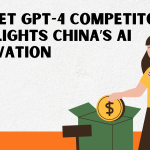Quick Take:
Salesforce’s decision to hire 1,000 salespeople to sell AI tools designed to replace sales roles highlights the complex, ironic evolution of automation in the workforce.
Salesforce’s announcement has sparked a wave of debate online, with critics questioning why an AI tool purportedly capable of streamlining sales still requires a massive salesforce to push it into the market.
Commenters have pointed out that while AI tools might excel at repetitive, low-level tasks like lead qualification, navigating complex sales cycles often requires the nuance of human interaction. One Redditor summarized the contradiction: “If their AI is so good, why do they need people to sell it?”
Others described frustrations with Salesforce’s traditional business model, including complaints about constant account executive (AE) turnover, bloated software, and aggressive upselling tactics. One user noted, “They’re always pitching overpriced solutions that overcomplicate operations.”
Broader Implications:
The move underscores a broader issue: the push for AI solutions often ignores their current limitations. For many, AI’s inability to replicate human relationship-building remains a dealbreaker, especially in industries like B2B sales where trust and custom solutions are paramount.
Salesforce’s approach suggests that AI adoption is far from a standalone solution. Instead, it’s an enhancement, not a replacement, for human expertise—at least for now.
Editor’s Take:
This paradox highlights a deeper truth about automation: while AI can augment productivity, its promise often outpaces reality. Salesforce’s strategy may represent a transitional phase where humans and AI must coexist to deliver results. For companies betting on AI to replace roles, the challenge lies in balancing efficiency with the relational depth only humans can provide.


